In May I wrote a BU Research Blog under the title ‘New ways of publishing?’ on the first time we published an academic paper in the post-review journal Qeios. The paper in question ‘The paper ‘Impact of Men’s Labour Migration on Non-migrating Spouses’ Health: A Systematic Review‘ [1] is part of Shraddha Manandhar’s Ph.D. study at the University of Huddersfield. Shraddha is supervised by the University of Huddersfield’s Prof. Philip Brown and Prof. Padam Simkhada and Bournemouth University’ Prof. Edwin van Teijlingen. Today’s blog is an update on that novel publishing journey.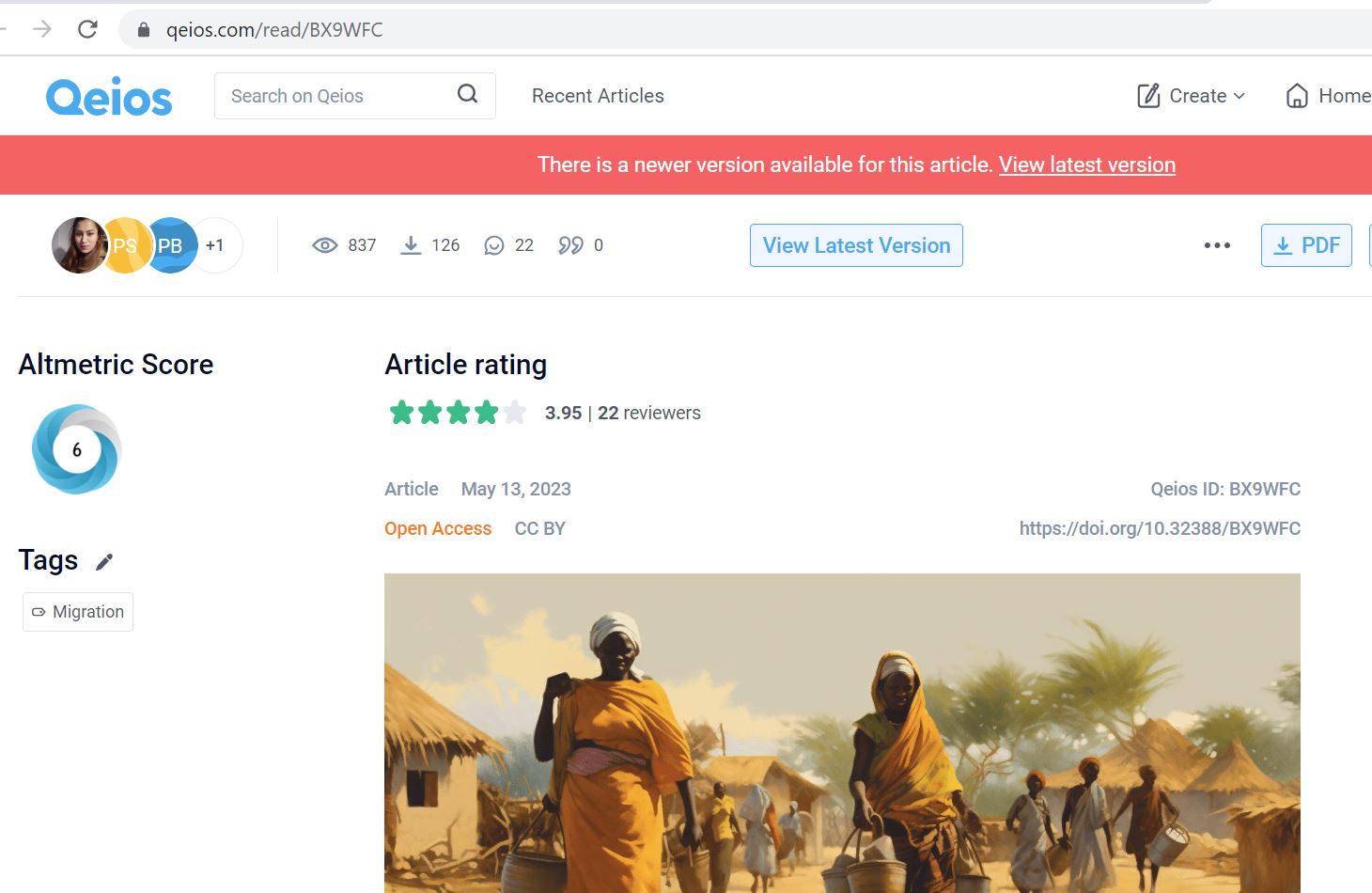
The first point to make is that our paper received twenty-two reviews, not two or three, but 22 different people read and commented on this paper. Sure, some reviews were better than others, some were more insightful, others were more generic, some seem to miss out points, or perhaps skimming the surface a little, but still twenty-two reviews! Secondly, by the nature of post-publication review we have taken the reviews to heart and submitted the second improved version of the paper [2]. The new reference for the paper is very similar to the first one, apart from the new submission data and the indication in the https that we are now on the second version [2]. Thirdly, each of the 22 reviews has its own DOI, and hence can easily be quoted. In the second version of the paper we have cited several of the online reviews [e.g. 3-6]. Last, but not least, Qeois offers Open Access and publishing is free of charge.
The great unknown for us how the academic world is going to view post-publication way of peer-reviewing. We realize that we have been lucky in getting 22 reviews for this paper. As part of learning about Qeios I read a 2022 paper in one of my areas of interest and submitted my own review [7]; this review was only the fifth for the paper.

Prof. Edwin van Teijlingen
Centre for Midwifery & Women’s Health
References:
- Manandhar, S., Simkhada, P., Brown, P., van Teijlingen, E. (2023) Impact of Men’s Labour Migration on Non-migrating Spouses’ Health: A Systematic Review, Qeios,
May 13, https://doi.org/10.32388/BX9WFC - Manandhar, S., Simkhada, P., Brown, P., van Teijlingen, E. (2023) Impact of Men’s Labour Migration on Non-migrating Spouses’ Health: A Systematic Review, Qeios, July 16, https://www.qeios.com/read/BX9WFC.2
- Wu, H. (2023). Review of: “Impact of Men’s Labour Migration on Non-migrating Spouses’ Health: A Systematic Review”, Qeios. https://doi:10.32388/NVW8C3
- Ghosh, A. (2023). Review of: “Impact of Men’s Labour Migration on Non-migrating Spouses’ Health: A Systematic Review”, Qeios. https://doi:10.32388/O1JP7C
- Dong, W. (2023). Review of: “Impact of Men’s Labour Migration on Non-migrating Spouses’ Health: A Systematic Review”, Qeios. https://doi:10.32388/V05O6G
- Bhattacharya, L. (2023). Review of: “Impact of Men’s Labour Migration on Non-migrating Spouses’ Health: A Systematic Review”, Qeios. https://doi:10.32388/SPFPQH
- van Teijlingen, E. (2023). Review of: “Research & Evaluation Framework 2022/23”, Qeios. https://doi.org/10.32388/N8TI2P
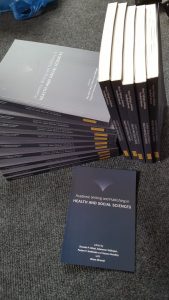


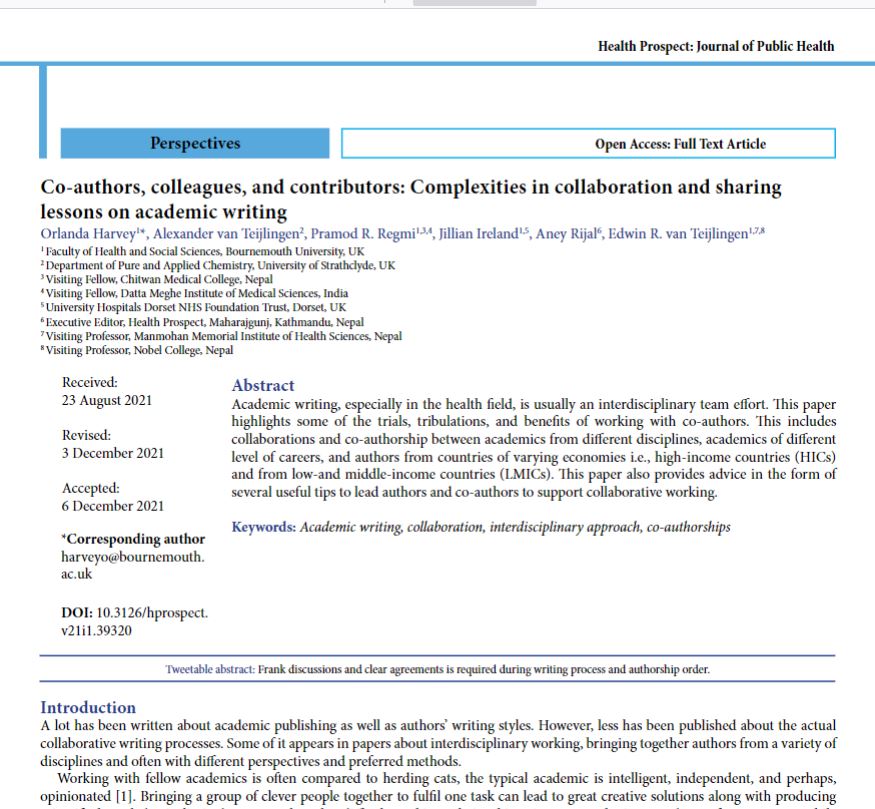
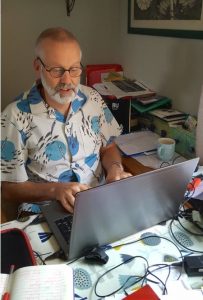
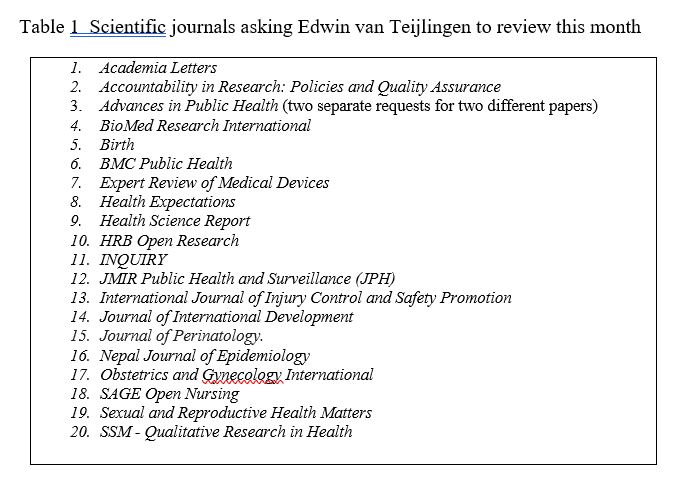
 UK Research and Innovation (UKRI) has developed a new feature in its current funding systems to recognise formally the contributions of UKRI reviewers via ORCID, a unique identifier tool for individuals.
UK Research and Innovation (UKRI) has developed a new feature in its current funding systems to recognise formally the contributions of UKRI reviewers via ORCID, a unique identifier tool for individuals.
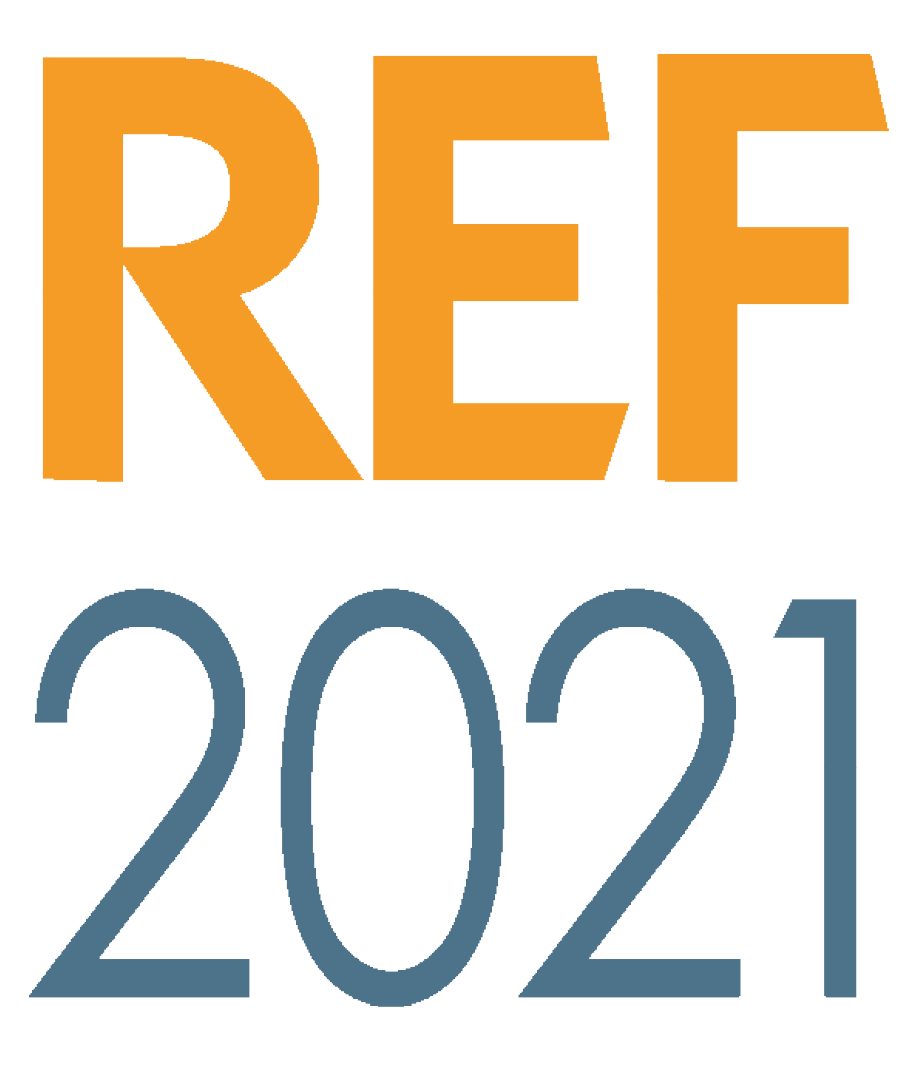
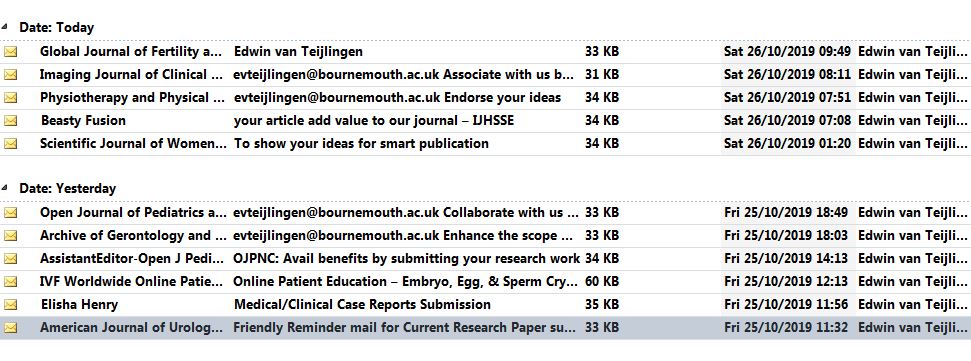
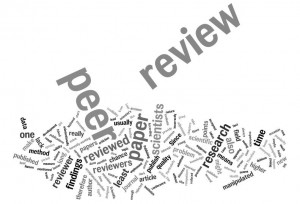
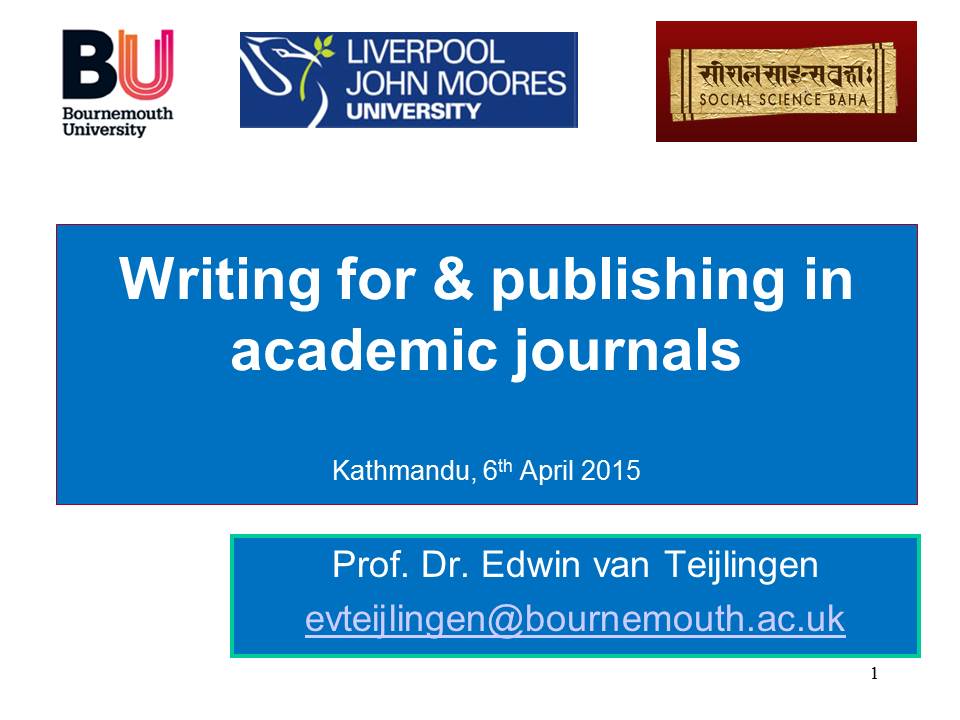

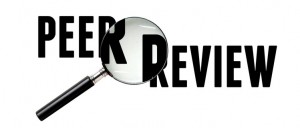 The Times Higher Education (THE) have
The Times Higher Education (THE) have  ESRC is
ESRC is 


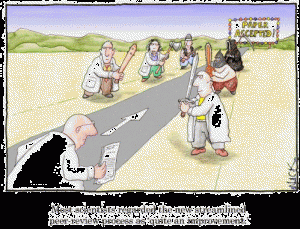











 SPROUT: From Sustainable Research to Sustainable Research Lives
SPROUT: From Sustainable Research to Sustainable Research Lives BRIAN upgrade and new look
BRIAN upgrade and new look Seeing the fruits of your labour in Bangladesh
Seeing the fruits of your labour in Bangladesh Exploring Embodied Research: Body Map Storytelling Workshop & Research Seminar
Exploring Embodied Research: Body Map Storytelling Workshop & Research Seminar Marking a Milestone: The Swash Channel Wreck Book Launch
Marking a Milestone: The Swash Channel Wreck Book Launch ECR Funding Open Call: Research Culture & Community Grant – Application Deadline Friday 12 December
ECR Funding Open Call: Research Culture & Community Grant – Application Deadline Friday 12 December MSCA Postdoctoral Fellowships 2025 Call
MSCA Postdoctoral Fellowships 2025 Call ERC Advanced Grant 2025 Webinar
ERC Advanced Grant 2025 Webinar Update on UKRO services
Update on UKRO services European research project exploring use of ‘virtual twins’ to better manage metabolic associated fatty liver disease
European research project exploring use of ‘virtual twins’ to better manage metabolic associated fatty liver disease